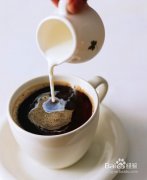A brief introduction to the description of the flavor, taste and aroma characteristics of boutique coffee beans in Columbia Hope Manor

Hope Manor's experiment and innovation in variety seems endless, constantly experimenting with different new varieties, except for the organic Kaddura (Caturra), which used to occupy most of the area in Hope Manor, from Rose Summer, Organic Rose Summer, Moka, Bourbon. Including red, yellow, Tekizik bourbon, pointed bourbon (Laurina), Pacamara (Pacamara), San Bernardo (San Bernardo) and Pache, they really bring the winery's serious attitude towards grape varieties to coffee. After Geisha, from Pacamara, Bourbon, and even pointed Bourbon, continued to create the surprise and admiration of the boutique coffee world. At that time, the opportunity that the estate wanted to see was "Rose Summer" (Rose Summer). After the Panamanian Emerald Manor became famous because of the rediscovery of rose summer in the garden, coffee farms around the world were studying the possibility of planting rose summer, but there was no rose summer variety in Colombia. It was hoped that the manor owner Rigoberto Herrera sent the chief botanist Hernando Tapasco to Panama to study, rented La Cardeida Farm next door to Bogut Emerald Manor, and Tapasco himself spent a year in Boquette. Thoroughly study the planting and production technology of Rosa rugosa.
In December 2006, Manor Hope bought the Cerro Azul in Colombia's Cauca Valley, the geographical environment is very close to Poquette, the warm air rising from the Cauca Valley and the cold air from the Pacific meet at the manor, creating an excellent evapotranspiration (an important factor for plant growth). In the harvest season of 2012, he won the second place in the annual World Coffee Competition of the American Fine Coffee Association, and the rosy summer of the other two estates of Hope Manor, and took three places in the top 10: 2nd, 3rd and 7th, creating an incredible triple crown (Triple crown)!
The Republic of El Salvador, located in the north of Central America, is the most populous country in Central America. The country is bordered by Honduras to the north, the Pacific Ocean to the south and Guatemala to the northwest. The national economy is dominated by agriculture, and the main crops are coffee and cotton. El Salvador is also one of the birthplaces of ancient Mayan culture, with not only distant culture, but also beautiful scenery such as volcanoes, plateau lakes and beaches along the Pacific coast.
The topography here is mainly mountainous and plateau, with many volcanoes. Savanna climate. The plain area belongs to the tropical rain forest climate and the mountain area belongs to the subtropical forest climate. The average annual temperature is 25-28 ℃, and the annual precipitation is more than 1800 mm in mountainous areas and about 1000 mm in coastal areas. It is rich in water resources, short and swift rivers and volcanic lakes.
El Salvador's coffee accounts for 40% of the country's exports, and it is usually picked in November, December and January-March of the following year. The export of raw beans lasts almost all year round. Coffee is produced in seven of the country's 14 provinces, with the largest number in the northwestern provinces of chalatenango and santa ana. El Salvador produces 100% Arabica coffee, 68% of which is bourbon, which usually grows at an altitude of 1062 Mel 1972 meters. On the other hand, El Salvador has a unique mountain, river and plateau, which provides a suitable environment for the growth of bourbon coffee. At the same time, El Salvador's suitable temperature, abundant precipitation and fertile soil are also indispensable natural conditions for breeding high-quality coffee beans. Salvadoran coffee, like other typical island beans, is well-balanced, soft and good in texture.
Central American countries generally distinguish quality grades by altitude, such as Costa Rica, Guatemala, Mexico, Honduras and other countries. Similarly, El Salvador is graded by altitude. At high altitudes, due to the cold climate and slow coffee growth, the density of raw beans will be higher, the hardness will be stronger, the unique acidity of Arabica will be better, and of course the better the quality will be. Therefore, the higher the altitude of coffee growth, the better the flavor, on the contrary, the lower the altitude, the higher the temperature, the faster the growth rate, the lower density, the lower hardness and the worse quality of raw beans.
The legendary Bourbon pointed Coffee is a natural variant found on the island of Bourbon. In the 18th century, the output of this high-end coffee, which was popular in Europe, reached 4000 tons, but in 1942, only 200kg was left. after the 20th century, this natural low-caffeinated coffee with excellent flavor disappeared from the market completely or even disappeared for a time because of diseases and insect pests and economic factors. Fortunately, Japan's Yoshiaki Kawashima believed in the legend and visited the legendary coffee in the country of origin "Bourbon Island" in 1999, and then successfully restored it in 2006 with the cooperation of French research units and Japan, harvesting the first batch of reborn bourbon spikes. In 2007, this batch of bourbon pointed bodies were launched in 100g packaging by UCC of Japan in Tokyo, with a price of nearly 8,000 yen, which was swept away and shocked the world. Since then, famous manors around the world have begun to study the planting of this rare tree species.
Bourbon pointed body Bourbon Pointu is French, take its raw bean-shaped tip, the scientific name is Laurina, caffeine content is only between 0.4% and 0.75%, the general Arabica caffeine content is about 1.2% to 1.6%, the difference is very large, so it is claimed to drink coffee that will not be sleepless. As a coffee species, Laurina has dense leaves and slow-ripening cherries, thus allowing sweetness to develop fully, cup-tested flavors show bright sour, low bitterness, charming aroma and meticulous chief botanist Hernando Tapasco's team set up a climate station on the manor to track weather data and assist in harvest decisions, which are constantly collected and analyzed once a week. After harvest, they will compare weather data, production data, cup test data, and analyze the correlation. The harvesters of Rose Summer are strictly trained to collect only ripe cherry fruits and are paid by the day, unlike other manors by weight. In order to prevent workers from harvesting unqualified cherries in order to improve their performance, half of the harvesting workers have more than six years of experience. After the fruit is harvested, it is sent to the central processing plant in Hope Manor, and each batch of rose summer will be marked and dealt with separately.
Important Notice :
前街咖啡 FrontStreet Coffee has moved to new addredd:
FrontStreet Coffee Address: 315,Donghua East Road,GuangZhou
Tel:020 38364473
- Prev

The treatment method of grinding degree and baking degree of boutique coffee beans in Costa Rican Goddess Manor
Costa Rica has only 3.5 million people but 400m coffee trees, and coffee exports account for 25 per cent of the country's total exports. Costa Rica's volcanic soil is very fertile and well drained, especially in the central plateau CentralPlateau, where the soil consists of successive layers of ash and dust. Costa Rica was therefore the first in Central America because of commercial value
- Next

A brief introduction to the History and Culture of the Origin and Development of Fine Coffee beans in Hope Manor of Colombia
Hope Manor's experiment and innovation in variety seems endless, constantly experimenting with different new varieties, except for the organic Kaddura, which used to occupy most of the area of Hope Manor, from rose summer, organic rose summer, mocha, bourbon (including different red, yellow, Tekizik bourbon), pointed bourbon, Pakamara, San Bernardo and Pache, they really take grape varieties seriously.
Related
- Does Rose Summer choose Blue, Green or Red? Detailed explanation of Rose Summer Coffee plots and Classification in Panamanian Jade Manor
- What is the difference between the origin, producing area, processing plant, cooperative and manor of coffee beans?
- How fine does the espresso powder fit? how to grind the espresso?
- Sca coffee roasting degree color card coffee roasting degree 8 roasting color values what do you mean?
- The practice of lattes: how to make lattes at home
- Introduction to Indonesian Fine Coffee beans-- Java Coffee producing area of Indonesian Arabica Coffee
- How much will the flavor of light and medium roasted rose summer be expressed? What baking level is rose summer suitable for?
- Introduction to the characteristics of washing, sun-drying or wet-planing coffee commonly used in Mantenin, Indonesia
- Price characteristics of Arabica Coffee Bean Starbucks introduction to Manning Coffee Bean Taste producing area Variety Manor
- What is the authentic Yega flavor? What are the flavor characteristics of the really excellent Yejasuffi coffee beans?

